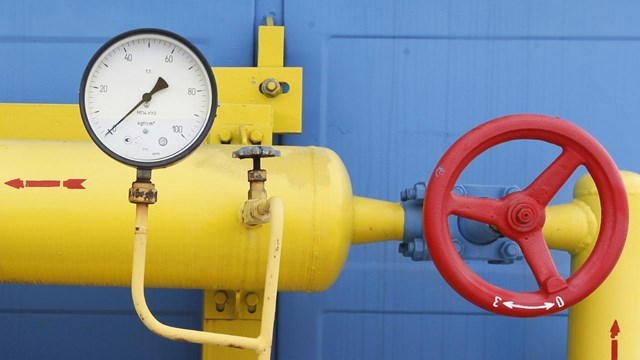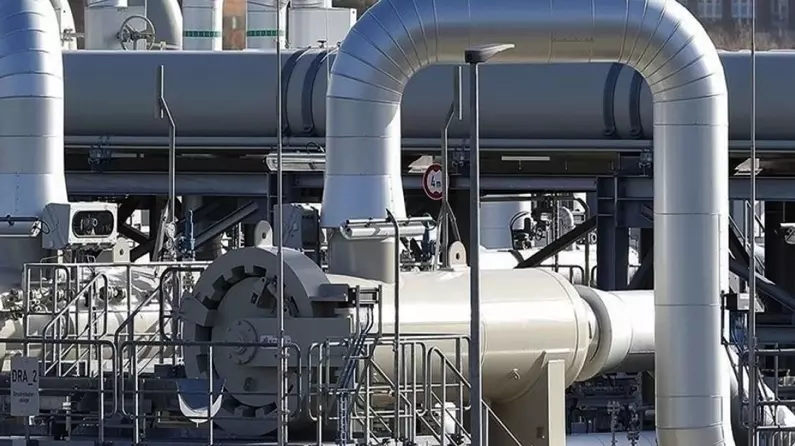
Work on the release of Turkmen gas to the markets of Turkey and Europe has accelerated.
Work on the release of Turkmen gas to the markets of Turkey and Europe has accelerated.
While the work on transporting Turkmen gas to Turkey through Azerbaijan and from there to Europe is gaining momentum, at the first stage, the plan to deliver 2 billion cubic meters of gas to Turkey through swaps comes to the fore.
The energy diplomacy of Turkey, Azerbaijan and Turkmenistan has intensified with regard to Turkmen gas, which came to the fore due to the bottleneck of natural gas in Europe after the Russian-Ukrainian war.
On March 1, Turkey and Turkmenistan signed a memorandum of understanding on cooperation in the field of natural gas and a declaration of intent to form the basis for partnership in the field of hydrocarbons.
Minister of Energy and Natural Resources Alparslan Bayraktar said that in this context, first of all, up to 2 billion cubic meters of Turkmen gas can be transported to Turkey.
Stating that 3 different options for the supply of the volume under consideration to Turkey are being considered, Bayraktar said: "One of these alternatives is the supply of Turkmen gas to Turkey through Iran through a swap. Secondly, Turkmen gas enters Turkey through Iran and Azerbaijan, again through swaps, and the other is Turkmen gas, which, in fact, is longer–term, more stable and has greater capacity, enters Turkey through a pipeline through the Caspian Sea. It's all on the table, these are all the issues we're talking about."
Intensification of work on concrete steps
Assessing the memorandum of understanding between Turkey and Turkmenistan, Associate Professor Dr. Aishegul Ketenji said: "Of course, this is a very important event, but in addition to declarations of goodwill, it is necessary to carry out infrastructure work and take concrete steps in the region."
Noting that Turkmenistan's natural gas is of great importance not only for Turkmenistan, but also for the Turkic world, Ketenji said: "Energy is an important component of Azerbaijan's economic development, and this is true for Turkmenistan and other countries. For this reason, it is necessary to develop multifaceted cooperation on a regional and global scale."
As for the supply of up to 2 billion cubic meters of Turkmen gas to Turkey, Ketenji said: "Looking at this, we can say that the necessary work has intensified to take concrete steps."
Noting that various alternatives for gas entering Turkey must be properly handled and policies must be worked out accordingly, Ketenji said: "I believe that the most suitable alternative for the arrival of Turkmen gas is connected with the Azerbaijan-Caspian route, even if the infrastructure works will be long-term. This line is of crucial importance for the development of the Turkic world and is a safe line."
Noting the importance of developing multifaceted cooperation with various energy actors in terms of ensuring Turkey's energy security, Ketenji said: "It is in the interests of all regional players that Turkey be in contact with all parties with a strong hand in the energy sector, such as Russia, Iran, Turkmenistan and Azerbaijan, and develop a policy based on sustainable and scientific data, which prioritizes energy security while maintaining a balance of power."
Turkmenistan ranks 4th in the world in terms of natural gas reserves
According to the report "Prospects to 2050" of the Forum of Gas Exporting Countries (GECF), Turkmenistan ranks 4th in the world with natural gas reserves of 13.9 trillion cubic meters.
Turkmenistan, which produced 40 billion cubic meters of natural gas annually in 2010, is increasing its production capacity every day. The country's annual production increased to 63.2 billion cubic meters in 2019, 66 billion cubic meters in 2020, 79.3 billion cubic meters in 2021, 78.3 billion cubic meters in 2022 and 80.6 billion cubic meters in 2023.
According to the report, Turkmenistan is expected to increase its annual natural gas production to 110 billion cubic meters by 2050.
About 35 billion cubic meters of gas produced in Turkmenistan is consumed domestically, 40 billion cubic meters are exported to China, and the rest is exported to Azerbaijan through Russia, Uzbekistan and Iran. Turkmenistan, which exports almost half of the natural gas produced, is the largest gas supplier to China.
The country's natural gas reserves are estimated at more than 50 trillion cubic meters.
Turkmenistan seeks to increase gas exports through pipelines
In 2009, the 4-stage Central Asia –China gas pipeline was put into operation, through which Turkmen gas is transported to China through Uzbekistan, Kyrgyzstan and Tajikistan. The capacity of the pipeline, stages A, B and C of which are currently in operation, allows for the annual supply of 55 billion cubic meters of gas to China. The last stage of the line, section "D" with a capacity of 35 billion cubic meters, should be put into operation by the 2030s and increase the total capacity of the line by 30 billion cubic meters.
Turkmenistan, which is working on alternative pipeline projects in the natural gas trade, intends in the future to sell 33 billion cubic meters of gas annually to Afghanistan, Pakistan and India through the 1,814-kilometer Turkmenistan-Afghanistan-Pakistan-India (TAPI) gas pipeline, which is in the final stage of construction.
Continuing efforts to increase natural gas production and exports, Turkmenistan signed a 5-year agreement with Russia in 2019 on the annual sale of 5.5 billion cubic meters of gas. As part of the swap agreement signed in 2021, it annually sells about 2 billion cubic meters of gas to Azerbaijan through Iran. Azerbaijani gas imports from Turkmenistan amounted to 1.5 billion cubic meters last year.

